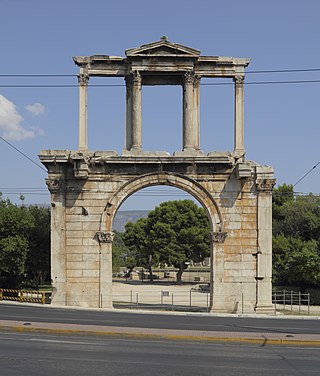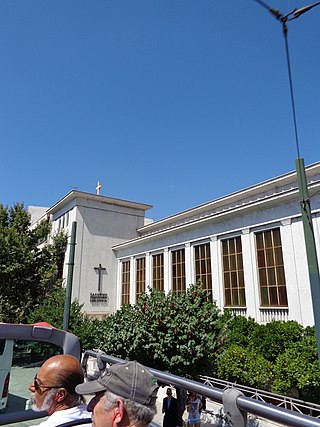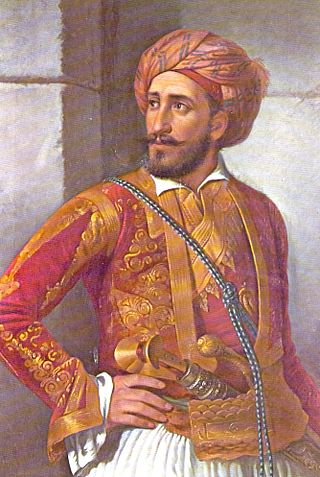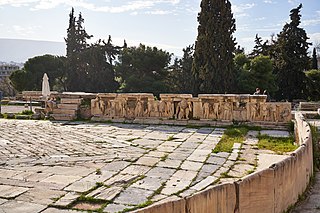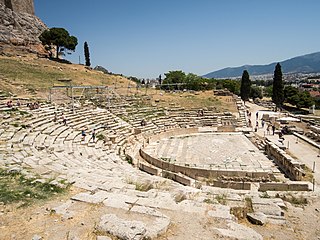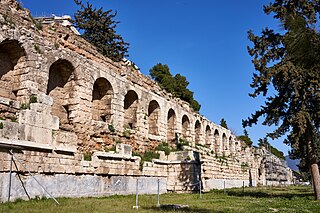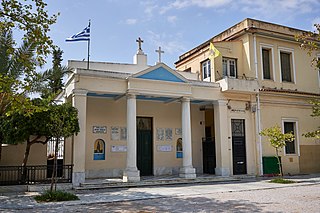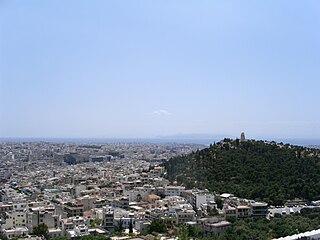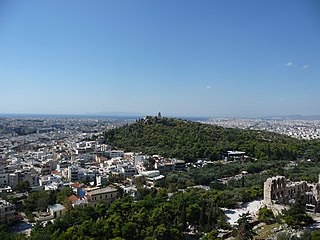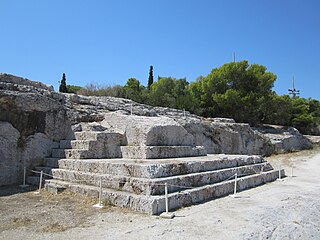Self-guided Sightseeing Tour #7 in Athens, Greece
Legend
Guided Free Walking Tours
Book free guided walking tours in Athens.
Guided Sightseeing Tours
Book guided sightseeing tours and activities in Athens.
Tour Facts
3.8 km
152 m
Experience Athens in Greece in a whole new way with our free self-guided sightseeing tour. This site not only offers you practical information and insider tips, but also a rich variety of activities and sights you shouldn't miss. Whether you love art and culture, want to explore historical sites or simply want to experience the vibrant atmosphere of a lively city - you'll find everything you need for your personal adventure here.
Activities in AthensIndividual Sights in AthensSight 1: Temple of Apollo Delphinios
A Delphinion found in ancient Greece, was a temple of Apollo Delphinios also known as "Delphic Apollo" or "Pythian Apollo", the principal god of Delphi, who was regarded as the protector of ports and ships.
Sight 2: Temple of Olympian Zeus
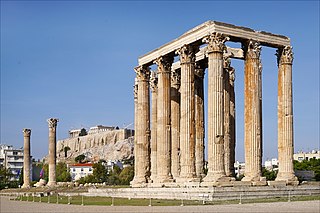
The Temple of Olympian Zeus, also known as the Olympieion or Columns of the Olympian Zeus, is a former colossal temple at the centre of the Greek capital, Athens. It was dedicated to "Olympian" Zeus, a name originating from his position as head of the Olympian gods. Construction began in the 6th century BC during the rule of the Athenian tyrants, who envisioned building the greatest temple in the ancient world, but it was not completed until the reign of Roman Emperor Hadrian in the 2nd century AD, some 638 years after the project had begun. During the Roman period, the temple, which included 104 colossal columns, was renowned as the largest temple in Greece and housed one of the largest cult statues in the ancient world.
Sight 3: Arch of Hadrian
The Arch of Hadrian, most commonly known in Greek as Hadrian's Gate, is a monumental gateway resembling—in some respects—a Roman triumphal arch. It spanned an ancient road from the center of Athens, Greece, to the complex of structures on the eastern side of the city that included the Temple of Olympian Zeus.
Sight 4: Melina Mecouri

Maria Amalia "Melina" Mercouri was a Greek actress, singer, activist, and politician. She came from a political family that was prominent over multiple generations. She received an Academy Award nomination and won a Cannes Film Festival Best Actress Award for her performance in the film Never on Sunday (1960). Mercouri was also nominated for one Tony Award, three Golden Globes and two BAFTA Awards in her acting career. In 1987 she was awarded a special prize in the first edition of the Europe Theatre Prize.
Sight 5: Greek Evangelical Church
The First Greek Evangelical Church is the first official Protestant/Evangelical church established in Greece. Its ecclesiastical building is located in Athens, opposite Hadrian's Arch.
Sight 6: Yannis Makriyannis
Yiannis Makriyiannis, born Ioannis Triantaphyllou, was a Greek merchant, military officer, politician and author, best known today for his Memoirs. Starting from humble origins, he joined the Greek struggle for independence, achieving the rank of general and leading his men to notable victories, most notably the successful defense of Nafplio in the Battle of the Lerna Mills. Following Greek independence, he had a tumultuous public career, playing a prominent part in the granting of the first Constitution of the Kingdom of Greece and later being sentenced to death and pardoned.
Sight 7: Bema of Phaedrus
The Bema of Phaidros is the marble platform created in the third century CE that served as stage front to the Theatre of Dionysos in Athens. It is decorated with a Neo-Attic Roman sculpture of the Hadrianic or Antonine period, this sculpture was dismantled sometime in antiquity, moved from an unknown location, and rebuilt into the bema of the Theatre by Phaidros, archon of Athens. Four stone reliefs decorate the stage front illustrating scenes from the life of Dionysos they are: 1) The birth of Dionysos, 2) the entrance of Dionysos into Attica, 3) the sacred marriage of Dionysos and the Basilinna and 4) the enthronement of Dionysos. These scenes are framed by crouching Silenoi.
Sight 8: Theatre of Dionysus
The Theatre of Dionysus is an ancient Greek theatre in Athens. It is built on the south slope of the Acropolis hill, originally part of the sanctuary of Dionysus Eleuthereus. The first orchestra terrace was constructed on the site around the mid- to late-sixth century BC, where it hosted the City Dionysia. The theatre reached its fullest extent in the fourth century BC under the epistates of Lycurgus when it would have had a capacity of up to 25,000, and was in continuous use down to the Roman period. The theatre then fell into decay in the Byzantine era and was not identified, excavated and restored to its current condition until the nineteenth century.
Sight 9: Stoa of Eumenes
The Stoa of Eumenes was a Hellenistic colonnade built on the South slope of the Acropolis, Athens and which lay between the Theater of Dionysus and the Odeon of Herodes Atticus The gallery was donated to the city of Athens by the king of Pergamon, Eumenes II, around 160 BC. Vitruvius makes reference to the building when speaking about the purpose of stoai erected near theatres that served as a refuge for the spectators in inclement weather conditions or as stores for theatre props.
Sight 10: Acropolis Museum
The Acropolis Museum is an archaeological museum focused on the findings of the archaeological site of the Acropolis of Athens. The museum was built to house every artifact found on the rock and on the surrounding slopes, from the Greek Bronze Age to Roman and Byzantine Greece. The Acropolis Museum also lies over the ruins of part of Roman and early Byzantine Athens.
Sight 11: St. Sophia
The church of Agia Sophia, a single-aisled basilica, is located in Athens, at 45 Dionysiou Areopagitou Street and belongs to the Meropeio Foundation.
Sight 12: Philopappos Hill
Philopappou or Filopappou is a small neighborhood of Athens, Greece south of the Philopappos Monument, from which it takes its name.
Sight 13: Philopappos Monument
The Philopappos Monument is an ancient Greek mausoleum and monument dedicated to Gaius Julius Antiochus Epiphanes Philopappos or Philopappus, a prince from the Kingdom of Commagene. It is located on Mouseion Hill in Athens, Greece, southwest of the Acropolis.
Sight 14: Pnyx
The Pnyx is a hill or hillside in central Athens, the capital of Greece. Beginning as early as 507 BC, the Athenians gathered on the Pnyx to host their popular assemblies, thus making the hill one of the earliest and most important sites in the creation of democracy.
Share
Disclaimer Please be aware of your surroundings and do not enter private property. We are not liable for any damages that occur during the tours.
GPX-Download For navigation apps and GPS devices you can download the tour as a GPX file.
